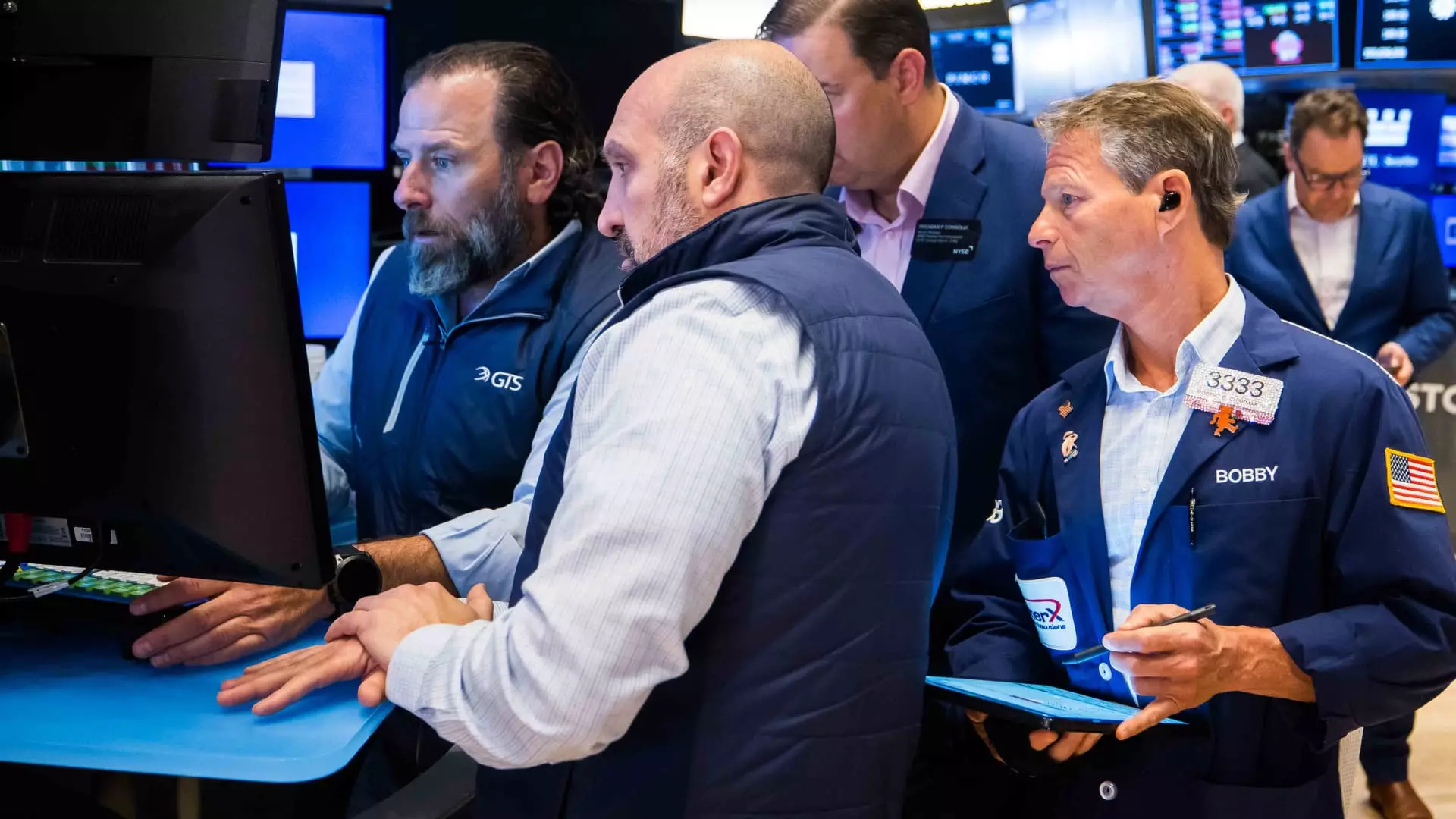The stock market faced a notable sell-off recently, bearing the brunt of a sudden escalation in Treasury yields that dampened investor sentiment. With indexes like the Dow Jones Industrial Average falling sharply by 745 points—a staggering 1.7% drop—the financial landscape became a veritable battleground of uncertainty. The backdrop to this turmoil is a growing concern around a new U.S. budget bill that threatens to exacerbate the nation’s hefty deficit. Treasury yields have reluctantly reached alarming heights, with the 30-year bond yield peaking at 5.08%, a level not seen since October 2023. In this level of fiscal disarray, the question must be asked: how long can this unsustainable trajectory continue before it leads to something far worse?
Deficit Dilemma: A Call to Action
As we stand on the precipice of what feels like an economic precipice, it is essential to analyze both the implications of the looming budget bill and the long-term consequences of such financial decisions. Market analysts and investment strategists are expressing concern that this new fiscal measure may worsen, rather than alleviate, the growing deficit. In an insightful moment, Sam Stovall of CFRA Research encapsulated the crux of this issue: the potential tax bill may introduce more debt at an even faster rate. For a country that has already shown alarming tendencies towards fiscal irresponsibility, such measures could lead to inflation spiraling out of control.
The paradox here is that while some degree of fiscal spending may stimulate economic growth, this particular approach appears reckless when viewed through a liberal lens focused on mindful governance. We should be advocating for a balanced fiscal approach, urging lawmakers to find ways to stimulate growth without putting taxpayers deeper into a financial hole.
Investor Sentiment: A Cautionary Tale
Investors, understandably shaken, are beginning to reevaluate their strategies during this tumultuous time. The decline in stock values of major players like Target and UnitedHealth serves as grim reminders that corporate America is not immune to the ramifications of fiscal policy. Each accusation of mismanagement or misalignment, whether related to tariffs or corporate social responsibility initiatives, causes ripples that resonate throughout the market.
The hesitance among investors—a quick spurt of growth followed by an abrupt contraction—can lead to a precarious market environment where gains are fleeting. The fear is palpable: have we, as a collective, indulged too much in the euphoria of a robust recovery post-COVID without regard for the underlying instability? The dramatic swings in the S&P 500 and Nasdaq serve as cautionary flags; high returns are often accompanied by high risks.
Rethinking Fiscal Responsibility
The genuine concern for future fiscal policy is not merely an abstract talking point for economists insulated in boardrooms; it profoundly impacts everyday Americans. As rising yields loomed overhead, the potential for this new budget measure to undo any hard-won fiscal responsibility cannot be overstated. What is evident is the growing disillusionment with a political system that seems to prioritize short-term gains over long-term stability.
Rather than embracing a budget that could lead us deeper into fiscal chaos, it is imperative that we seek policies crafted with foresight and diligence. A progressive tax structure that narrows income inequality, combined with public investments aimed at sustainable growth, could pave a way forward that aligns with both economic sanity and social equity.
The Road Ahead: A Necessary Transition
As the repercussions of poor fiscal leadership become more pronounced, it is clear we are at a crossroads. Voters and investors alike must grapple with an essential truth: indulgence in reckless financial practices must not be the status quo. With looming deadlines for new budget proposals, now is the time to advocate for leadership that prioritizes sustainable practices over expedient gains.
In an environment characterized by intensifying trepidation over fiscal policies, keeping our sights set on mature, rational approaches is crucial. If progress toward a balanced budget remains sidelined in political debates, the risk of economic instability will only heighten, placing undue stress on our financial futures. High yields are not merely numbers on a screen; they are indicative of the choices we make today that could dictate the economic landscape of tomorrow.

Leave a Reply